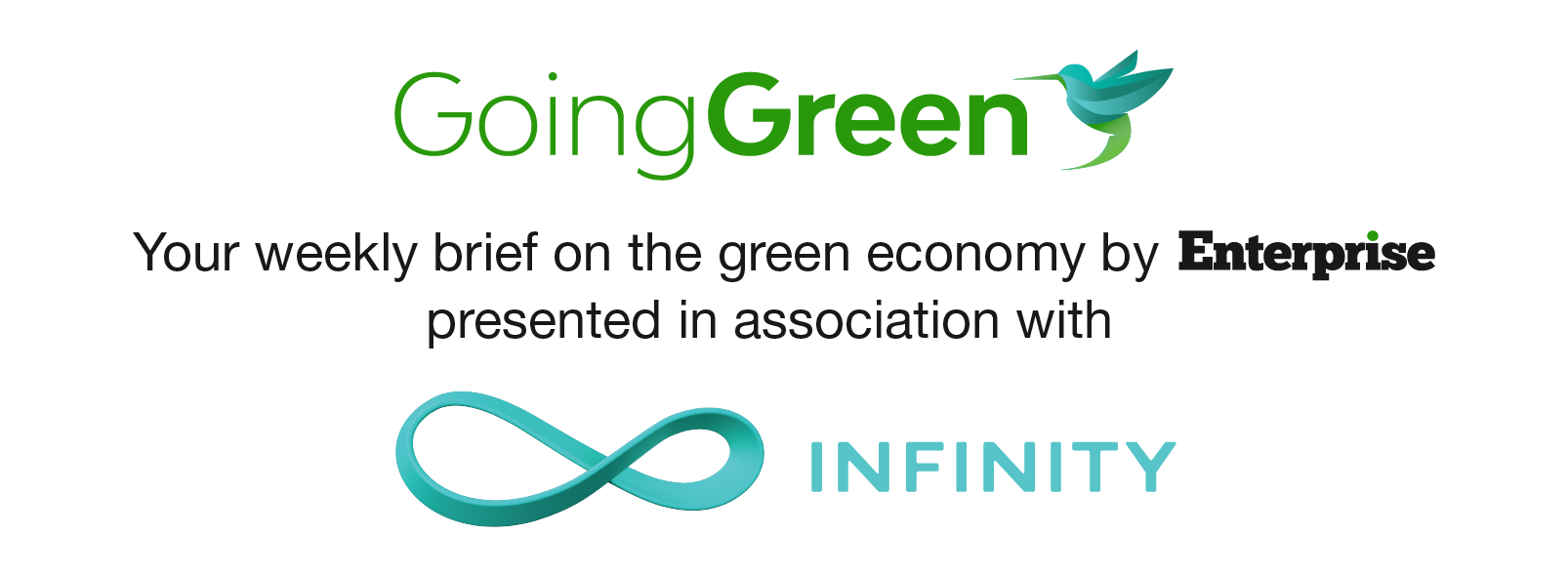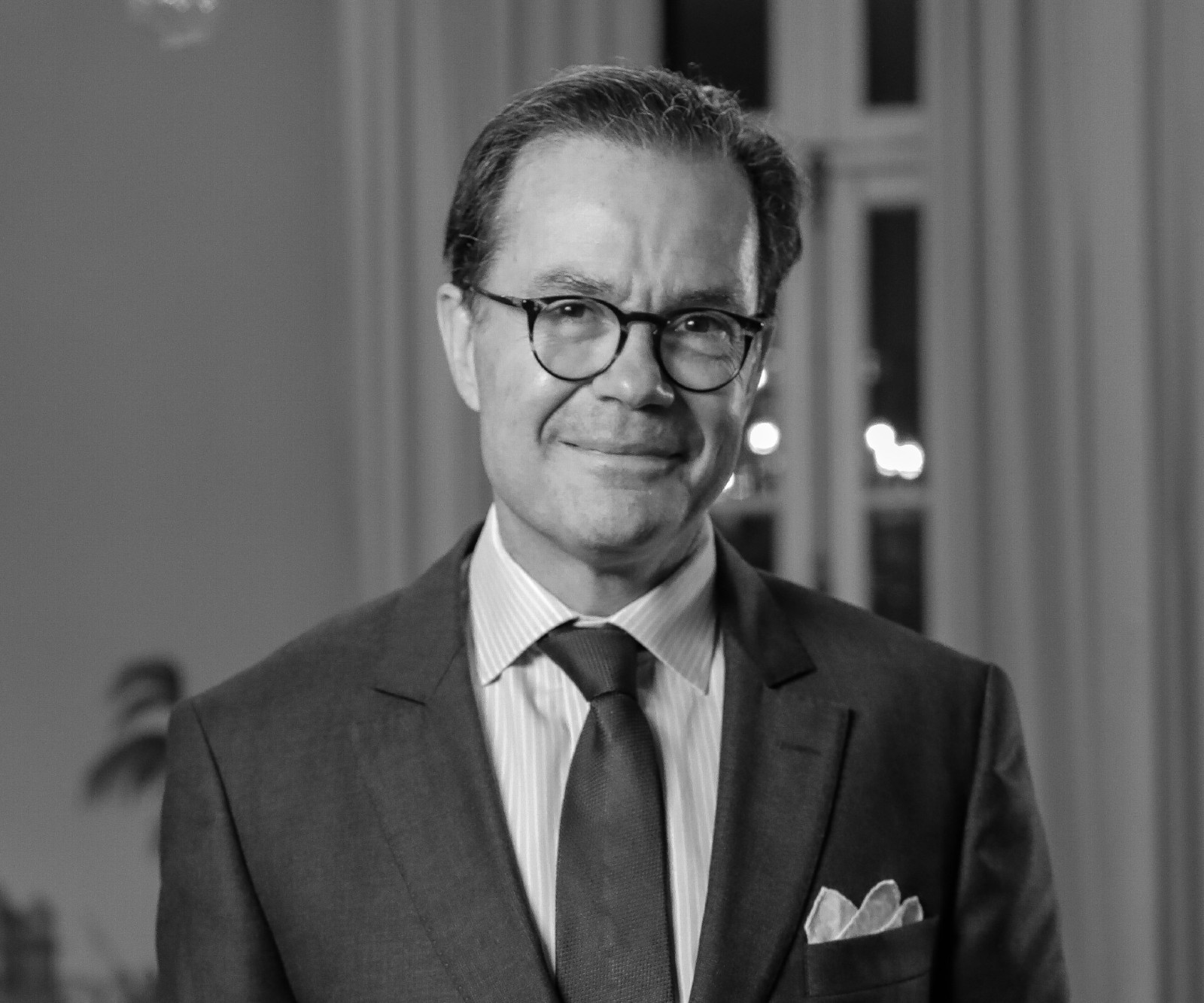
Enterprise talks to: French Ambassador Stéphane Romatet on building a greener Egypt

Enterprise talks to: French Ambassador Stéphane Romatet on building a greener Egypt: French investment in Egypt has grown from an estimated EUR 3 bn in 2017 to EUR 5 bn today. Major renewables investments include Engie’s 250 MW Ras Ghareb wind farm; EDF’s 130 MW Benban solar plants; Total Eren’s two 63 MW PV Benban solar projects; and Artelia’s 2.4 GW hydroelectric project. The French Agency for Development (AFD) has provided EUR 800 mn in loans to Egypt’s renewable energy projects since 2007, and nearly EUR 400 mn in climate financing through credit lines to the banking sector since 2015.
We sat down with Stéphane Romatet, French Ambassador to Egypt, to discuss France’s support for Egypt’s green energy plans. The discussion touched on France’s ambitions to partner with Egypt on green hydrogen, where French companies are eyeing more renewables investment in Egypt, and the need to resolve the feed-in tariff issue.
Edited excerpts from our conversation:
Current French investment in Egypt is an estimated EUR 5 bn. Renewables comprise 10% of that mix. Energy investments are growing from big players like Total Eren, EDF and Engie, says Romatet. SMEs like Mascara and Naldeo are also eyeing the sector. Current French investment in renewable energy in Egypt is nearly EUR 500 mn.
Increasing overall investment is a priority: France wants to expand its investment in Egypt. Strategic sectors include infrastructure, transportation and energy. “We want more French companies to invest in Egypt. The AFD could support them by providing financing,” Romatet says.
Renewables could make up 20% of French investment in Egypt within five years: “Targeting 20% is reasonable given our planned projects in solar energy, wind farms, and biomass — and the long-term promise of hydrogen,” he says.
Hydrogen is strategically important for France, and Egypt is its major international partner: Hydrogen is key to France’s post-covid recovery plan. EUR 7 bn is earmarked for France’s green hydrogen development — hydrogen made without fossil fuels — by 2030, says Romatet. Egypt is the only country France is currently eyeing international cooperation on hydrogen with, Romatet believes.
France is helping Egypt plan its national hydrogen strategy: French and Egyptian specialists, including regulators and electricity ministry representatives, are developing Egypt’s national hydrogen strategy, says Romatet. France is ready to pay for consultants to help with this process. It’s outlined the capacity of its energy companies in hydrogen, says Romatet, and will develop terms of reference with the Egyptian government for Egypt’s national hydrogen strategy, due to launch by 2030.
French companies including Engie, EDF and Voltalia are prioritizing investment in Egypt’s renewables, says Romatet. Engie is in talks with the electricity ministry to finalize the power purchasing agreement for its 500 MW BOO wind farm in the Gulf of Suez. “They want to finalize everything this year, to launch the project in 2022,” Romatet says. EDF Renewables is preparing for the next round of auctions for new solar projects. And Voltalia is eyeing new solar and wind investment.
Even with the focus on Ras Ghareb, solar is attractive: Current heightened interest in wind projects is partly because industry leader Engie terms the Red Sea one of the best global locations for wind energy, Romatet says. But land availability, a big factor in solar investments, has also slowed down recently. When new land becomes available, we can expect to see more solar investment, he adds.
How helpful are renewable investments, given Egypt’s electricity glut? Well, surplus electricity is good for Egypt’s energy hub ambitions. Egypt’s current 40% overcapacity opens up possibilities for export, while leaving wide enough margins to absorb growing domestic demand, says Romatet. “Egypt will play an important role in meeting Europe’s energy security needs.”
But much depends on its ability to export — which is still oil and gas reliant: Egypt’s oil and gas export capacity is clear, Romatet notes. But geopolitical maritime boundary issues with Cyprus and Turkey also complicate this export process, he adds.
Egypt needs time to absorb additional capacity from renewable projects: New phases of renewable energy projects, including Ras Ghareb 2 and Kom Ombo, must be planned with domestic demand and export possibilities in mind. “The elements must be balanced. Why would investors or the Egyptian authorities invest in capacity that isn’t currently needed?” Renewable projects also take time to reach maturity, he adds. “There isn’t a slow down, but we’re seeing absorption of this first phase of projects.”
Fixing the FiT is key to driving investment, says Romatet. The Egyptian authorities are working hard to fix the feed-in tariff — especially for solar — at the correct price. Ensuring it’s low enough to be affordable but substantial enough to attract foreign investors is a balancing act, but resolving it is crucial, he says.
While issues around transmission and storage also need addressing: Transmission and storage capacity can also be constraints for French renewable energy companies. “Transmission is a monopoly, and storage is technologically challenging. Addressing storage capacity will be one of the key elements of the hydrogen strategy.” Still, some solutions are underway, like Voltalia developing storage solutions for solar energy.
Where else could French green investment grow? Energy efficiency and transition: EDF and Schneider will continue to focus on heightening the efficiency of their distribution networks, says Romatet. Schneider could be eyeing more electricity distribution command centers. French consultancy firms like Artelia and Naldeo want to increase their energy transition work — helping companies move towards carbon neutrality.
And possibly desalination: Both Suez and Engie are interested in the government’s desalination program. Mascara, which offers decentralized solar-power desalination technology, is also eyeing the market, says Romatet. Artelia is already involved in three desalination projects in New Mansoura, Galala, and Port Said. Desalination must be connected to hydrogen production because hydrogen is water intensive, he adds.
Beyond private sector investment, AFD offers grants and loans: Egypt’s hydrogen development strategy study could be financed through an AFD-French treasury grant, says Romatet. AFD’s funding mechanism, Proparco, financed the three French companies involved in Benban through direct loans, he adds.
Technical assistance to financial institutions could drive financing to the green economy: Egypt’s a liquid country, with accessible financing facilities, says Romatet. But providing technical assistance so financial institutions understand how to evaluate credit for green energy projects could help improve the culture of lending, he adds.
Your top climate stories for the week:
- Green financing: The European Bank for Reconstruction and Development will provide USD 100 mn to the National Bank of Egypt to on-lend to green SME projects.
- Water desalination: A consortium of Orascom Construction and Metito handed over a USD 130 mn seawater desalination plant in East Port Said.
- Environmental awareness: The environment and tourism ministries launched a campaign to raise awareness on marine conservation in the Red Sea.
- Structural reforms: The green economy and clean energy “remain of primary importance” in a new raft of planned structural reforms.
- Climate transition: The pandemic has accelerated the need to boost the digital and green transformation, OECD chief economist Laurence Boone said last week.
Enterprise is a daily publication of Enterprise Ventures LLC, an Egyptian limited liability company (commercial register 83594), and a subsidiary of Inktank Communications. Summaries are intended for guidance only and are provided on an as-is basis; kindly refer to the source article in its original language prior to undertaking any action. Neither Enterprise Ventures nor its staff assume any responsibility or liability for the accuracy of the information contained in this publication, whether in the form of summaries or analysis. © 2022 Enterprise Ventures LLC.
Enterprise is available without charge thanks to the generous support of HSBC Egypt (tax ID: 204-901-715), the leading corporate and retail lender in Egypt; EFG Hermes (tax ID: 200-178-385), the leading financial services corporation in frontier emerging markets; SODIC (tax ID: 212-168-002), a leading Egyptian real estate developer; SomaBay (tax ID: 204-903-300), our Red Sea holiday partner; Infinity (tax ID: 474-939-359), the ultimate way to power cities, industries, and homes directly from nature right here in Egypt; CIRA (tax ID: 200-069-608), the leading providers of K-12 and higher level education in Egypt; Orascom Construction (tax ID: 229-988-806), the leading construction and engineering company building infrastructure in Egypt and abroad; Moharram & Partners (tax ID: 616-112-459), the leading public policy and government affairs partner; Palm Hills Developments (tax ID: 432-737-014), a leading developer of commercial and residential properties; Mashreq (tax ID: 204-898-862), the MENA region’s leading homegrown personal and digital bank; Industrial Development Group (IDG) (tax ID:266-965-253), the leading builder of industrial parks in Egypt; Hassan Allam Properties (tax ID: 553-096-567), one of Egypt’s most prominent and leading builders; and Saleh, Barsoum & Abdel Aziz (tax ID: 220-002-827), the leading audit, tax and accounting firm in Egypt.